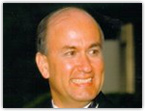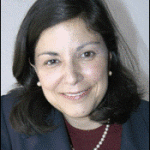Pasadena ‘Walk-Up’ Window Cuts Wait Times
February 27, 2014 By
Courts across California are reporting long lines for relatively routine issues, like traffic tickets, but at Pasadena a new walk-up window is letting people bypass even entering the courthouse, which means not going through the security lines and reduced wait times.
The Courthouse News is reporting that Supervising Judge Mary Thornton House called the new window a huge success and said it would reduce long waits and lines, adding that the court would like to install more walk-up windows, but structurally the building can only accommodate one.
Judge House also noted in the CN that the recent L.A. County Superior Courtco consolidation plan led the Pasadena courthouse to assume Alhambra traffic cases… “so our traffic matters were doubled, which created very long lines and required people to go through weapons screening simply to pay a ticket.” The report also noted a Yelp user who said it had taken him two hours to pay a $238 traffic ticket. The report also says members of the public still need to visit the clerk’s office to request traffic school, or pay traffic citations that have already been sent to collections. Check out the story here.
Race Is On For Sohigian Judicial Seat
February 26, 2014 By
By L.A. Superior Court judicial election standards, we have a barn-burner of an election shaping up for the seat currently held by Judge Ronald Sohigian, who is retiring. The latest report is that four people may be running in the June primary, including former state lawmaker Charles M. Claderon.
Calderon’s brothers, state Sen. Ronald Calderon and former Assemblyman Thomas Calderon, are under indictment on federal corruption charges did nothing to change his mind, he told the MetNews website, which also cited newswire reports that Tom Calderon pled not guilty Friday and posted bail. Ron Calderon surrendered yesterday, pled not guilty, and was released on $50,000 bail.
The actual deadline for filing candidate papers is March 7 and the MetNews notes that none of the expected office-seekers had filed as of a few days ago. One of the anticipated candidates, Deputy District Attorney Efrain Aceves is now saying he will not run. The judicial seat is formally Office No. 48 and you can follow the race at the MetNews.
Former Majority Leader Makes Interesting Judicial Candidate
February 20, 2014 By
If you’re starting to read tea leaves for the upcoming Superior Court judicial elections, don’t forget to note that
Charles Calderon, the former majority leader of both the state House and Senate, is running. He naturally has lined up a solid list of political endorsements and will run a higher profile campaign than we’re perhaps accustomed to in picking judges.
Charles Calderon, the former majority leader of both the state House and Senate, is running. He naturally has lined up a solid list of political endorsements and will run a higher profile campaign than we’re perhaps accustomed to in picking judges.
But perhaps more interesting is his public support from a board member of the Alliance of California judges, an independent judicial group that has been very critical of how the state courts are run. In a story by John Hrabe at calnewsroom.com, Judge Susan Lopez Giss had good things to say.
The judge, who reportedly worked with Calderon in the city attorney’s office, said that ” [his] judgeship would afford the citizens of Los Angeles County with the wealth of his experience as an attorney and a legislator.” We will see if he brings any of that Alliance heat to the public square.
Check out the story here.
Judge Backing New Hate-Crime Reporting App
February 18, 2014 By
Los Angeles Superior Court Judge David Wesley is adding a high-profile judicial endorsement to a smartphone app that allows users to easily document and report “hate incidents.” He joins other officials backing the “CombatHate” app, including L.A. Deputy Police Chief Michael Downing.
The app was designed by the Simon Wiesenthal Center and allows users to instantly and confidentially report a hate crime or online hate-induced activity to the Center, which can determine appropriate next steps. Judge Wesley has previously collaborated with the Museum of Tolerance to extend the Los Angeles Superior Court’s decades-old Teen Court through the Stopping Hate And Delinquency by Empowering Students (SHADES) program, which helps combat “hate incidents and hate crimes” on Los Angeles County’s school campuses.
Check out the CBS Los Angeles coverage here.
Superior Court Judicial Election Deadline Looms, At Least 11 Seats Expected To Be ‘Open’
February 5, 2014 By
A veteran criminal defense attorney and civil rights plaintiff-side attorney intends to buck the prosecutors trend in the upcoming Los Angeles Superior Court election, considering one of “at least 11” open seats to avoid running against an incumbent judge, the MetNews is reporting. The news site noted that Andrew M. Stein said he made the decision to run after eliciting a substantial positive response from “friends, relatives, and colleagues,” including a number of judges, whom he queried by email as to whether he should run.
The MetNews added that “… noting that all of the non-incumbents who had filed declarations of intent as ofThursday were deputy district attorneys, Stein said: ‘I love a lot of D.A.s and I have great respect for a lot of D.A.s. But I looked at who was running and they don’t have nearly the experience I have.'”
Stein is a sole practitioner and thus lacks the support that comes from a large firm, and the MetNews said that a successful campaign is likely to cost $350,000 or more.This week is a filing deadline that should make it clear which judicial seats are open. You can read the MetNews report, and bookmark it to follow the judicial race, here.
L.A. Supervisors Face Juvenile Justice Issue
February 4, 2014 By
A juvenile policy attorney and former public defender has an opinion piece making the rounds that makes a great argument for increasing funding to the Los Angeles juvenile justice system, but for once the issue is up to county officials instead of the wise ones in Sacramento. Carol Chodroff explains how the current attorney appointment scheme relies on a flat-fee contract that seems nearly designed for poor outcomes.
In her piece, which has appeared in both the Huffington Post and CityWatch, she reports that “… Los Angeles has one of the largest juvenile justice systems in the world, processing approximately 20,000 youths annually. About 11,000 of these youths are ineligible for representation by the public defender because of a conflict of interest. They are represented instead by appointed panel attorneys who receive a flat fee of approximately $350 for the life of a case, regardless of its complexity.
The bad news from this is that “… this perverse compensative scheme penalizes panel attorneys for doing the work required to zealously represent youthful clients. The resulting arbitrary and disparate treatment of children in the Los Angeles juvenile delinquency system is destructive, expensive, and unconstitutional.” But she also notes that the good news is “… next week, the Los Angeles County Board of Supervisors will hear an important motion introduced by Supervisor Mark Ridley-Thomas to examine and recommend improvements to the delinquency representation system. The Board of Supervisors should pass this critical motion.”
You can read her argument in support of the county motion, via CityWatch, here.
Some Teens Get A Special Court
January 31, 2014 By
One more alternative to California’s traditional justice system: Santa Monica High School has become the latest Los Angeles County school to adopt a “teen court” approach that lets fellow students judge their peers. The Santa Monica Daily Press reports that the program, launched in 1992, offers teenagers a voluntary alternative to delinquency court and the crime can be removed from their record.
The first court featured a visit from the police chief and several judges, but the teenagers handled the actual case themselves, according to a story by David Mark Simpson. The story follows a case of middle school computer hacking and how it gets handled. Citing a program official, the newspaper says the program has grown to include 23 schools.
The defendants, who are from other schools, opted to be tried by a jury of their peers rather than go to delinquency court. The incentive to be tried by a group of adolescents: The crime is expunged from their record.
See the story here.
Chief Justice: Justice Rationing Is A Civil Rights Issue
January 15, 2014 By
The real battle over Gov. Jerry Brown’s 2014-15 budget plans got under way this week with California Chief Justice Tani Cantil-Sakauye saying that budget cuts are not just a fiscal problem but a civil rights problem. Her comments at a Tuesday press conference and in related interviews indicate that the “civil rights issue” will likely highlight this year’s argument for more courts funding. Last year, cuts in Los Angeles County brought threats of legal action based largely on access issues.
The chief justice told the Los Angeles Times that the governor’s spending plan probably would trigger more courthouse closures and layoffs and increase delays for trials and divorce and custody matters. Brown’s plan includes an “additional” $105 million for the courts in 2014-15, but Cantil-Sakauye wants a three-year plan with much more spending. “We are rationing justice, and it has become more than a fiscal problem,” Cantil-Sakauye told reporters. “It is, in my view, it is now a civil rights problem. … We know we are denying the protections of an American democracy.”
You can read the L.A. Times story here.
Long Beach Facing High-Profile Judge Race
January 14, 2014 By
By Los Angeles Superior Court judicial election standards, it seems Long Beach is approaching a knock-down, drag-out election. The Metropolitan News-Enterprise, a legal newspaper known for its judicial election coverage, is reporting that L.A. County Deputy District Attorney Carol Najera is running for the Los Angeles Superior Court.
That would be a challenge to incumbent Judge James Pierce, who sits in Long Beach. The report cited a judge “… who knows both Najera and Pierce, and who asked not to be named” as explaining that Najera “hates” the incumbent and “thinks he’s a terrible judge.” Najera, who was not available for comment for the report, is also connected to the high-profile Menendez brothers trail. She was on team that convicted the brothers of murdering their parents. That conviction came after an earlier trial ended with a hung jury.
The report also said the apparent candidate “… recently tweeted that she will kick off her campaign at an event in Long Beach Jan. 23.” Judge Pierce was appointed to the bench by then-Gov. George Deukmejian in 1989 and has previously served as a Los Angeles Superior Court commissioner.
‘City In Decline’ Report Skips Court Woes
January 9, 2014 By
Another example of how off-the-radar our civil courts crisis can be: The once-anticipated Los Angeles 2020 Commission report of “A City In Crisis” does not include those long lines at the courthouse or the slow dismantling of our juvenile and community courthouse system. Indeed, after reading the Los Angeles Times review of our city’s crisis, you realize that our “paper of record” has taken a harder look at the crackdown on jaywalking than on the civil courts.
Granted, that may be because you have to connect the dots. Superior Courts funding is a “state issue,” until it becomes a police issue, a landlord-renter issue, a business development issue, an economic recruitment issue – in other words, until it disrupts the stuff that forces headlines. Reviews of the 20-page report, actually billed as “part one,” have been harsh, with the L.A. Weekly calling it “a mess” and noting that the group complains that the city leadership “… suffers from a crisis in leadership and direction” before saying “… it’s clear that this report is suffering from a crisis in leadership and direction, as it bogs down in the same old thinking. Whether this condition also applies to the city’s leaders is impossible to know, as the report does not analyze, address or acknowledge anything that any particular city leader has done about any of these issues.”
The “independent commission,” chaired by former U.S. Commerce Secretary Mickey Kantor, is comprised of 13 men and women and was set up after voters turned down a recent city tax increase. An L.A. Times opinion piece ran down the crisis list: “The city, according to the report, is afflicted with weak job growth; high poverty; bad traffic; underperforming schools; weak, inactive government; red tape that stifles economic development; crumbling infrastructure; unfunded pensions; budget gimmicks and a disaffected electorate… Los Angeles is sinking into a future in which it no longer can provide the public services to which our people’s taxes entitle them and where the promises made to public employees about a decent and secure retirement simply cannot be kept.”
It’s lively reading, but perhaps frustrating to anyone hoping that rationed justice can receive the same attention as the live-altering use of budget gimmicks.
The excellent L.A. Weekly piece is here: http://www.laweekly.com/
The Reuters coverage is here: http://www.reuters.com/
The L.A. Times editorial is here: http://www.latimes.com/


